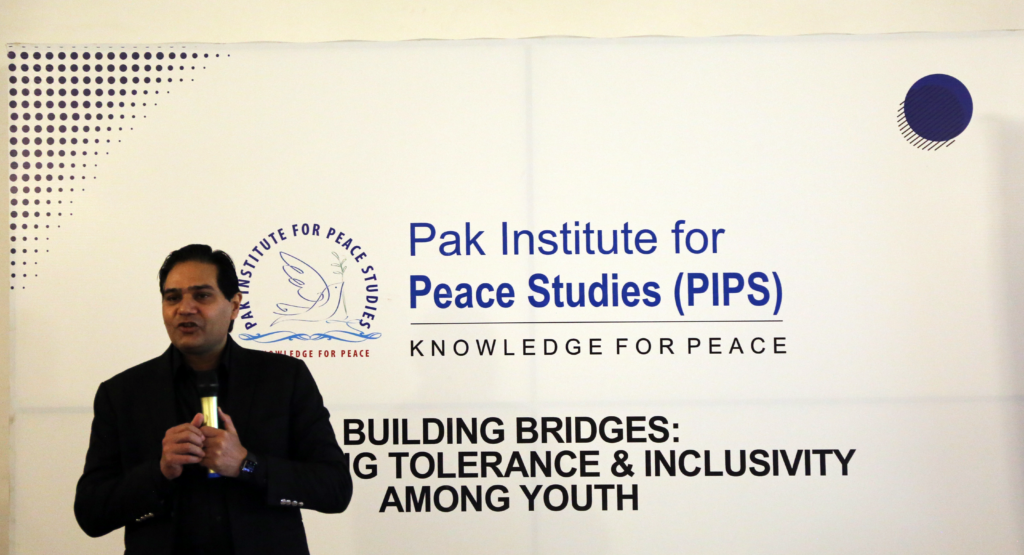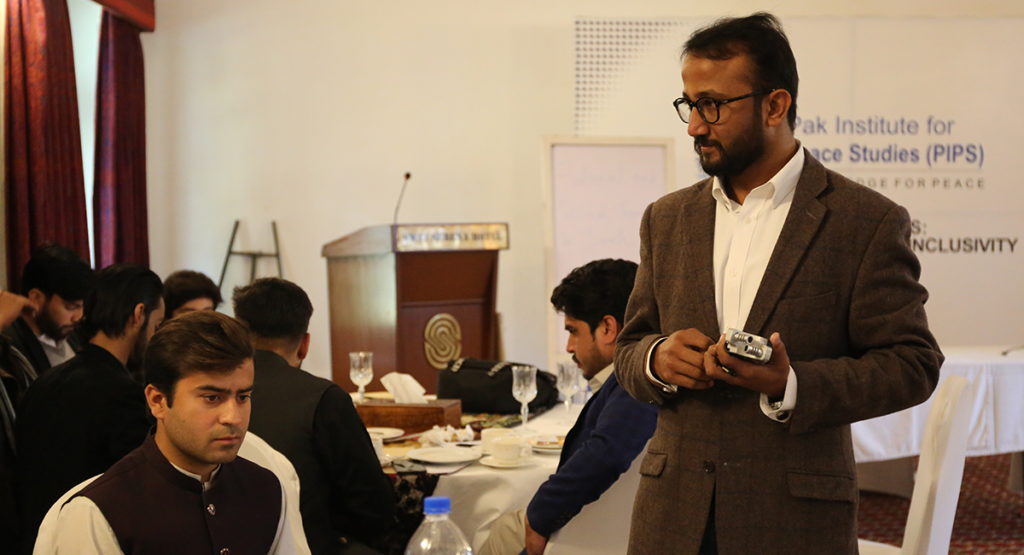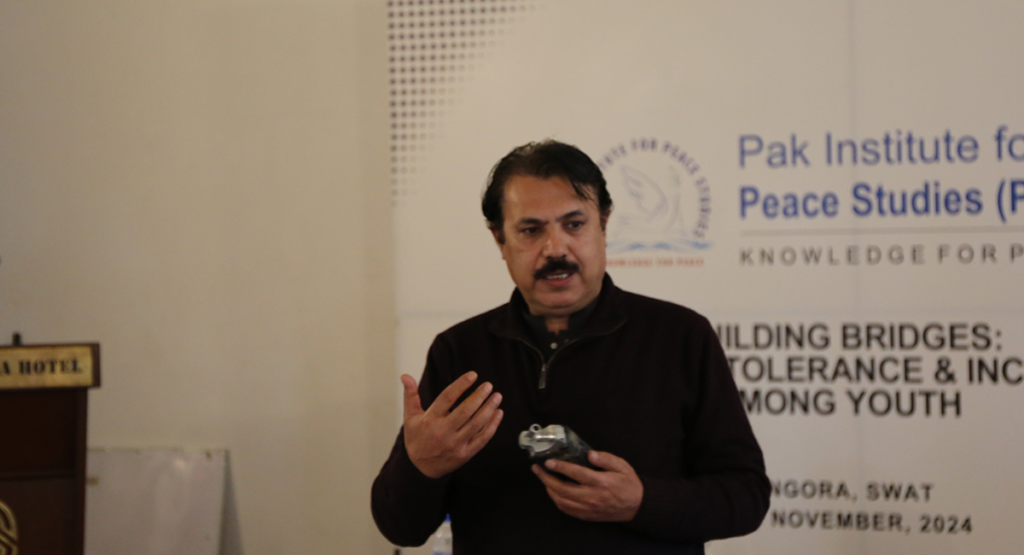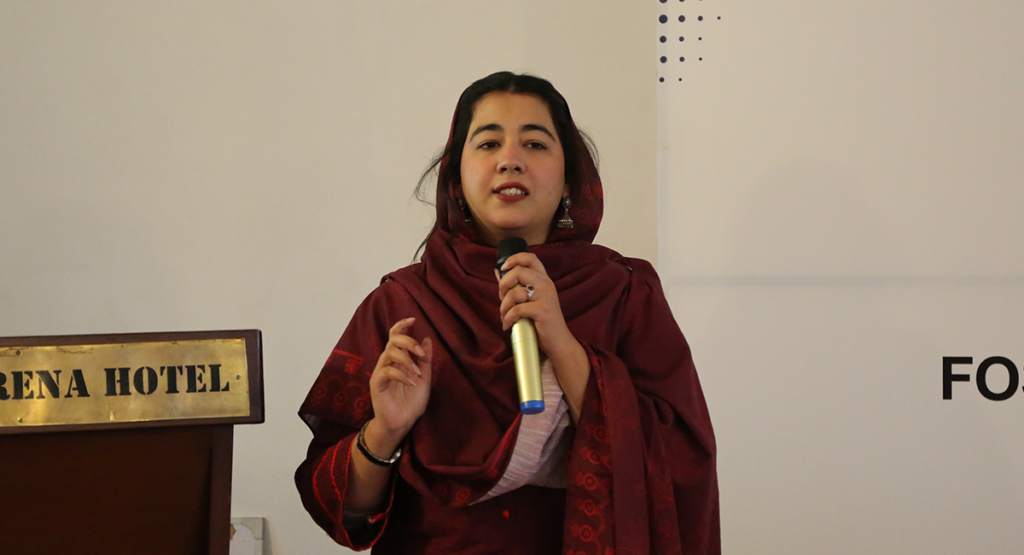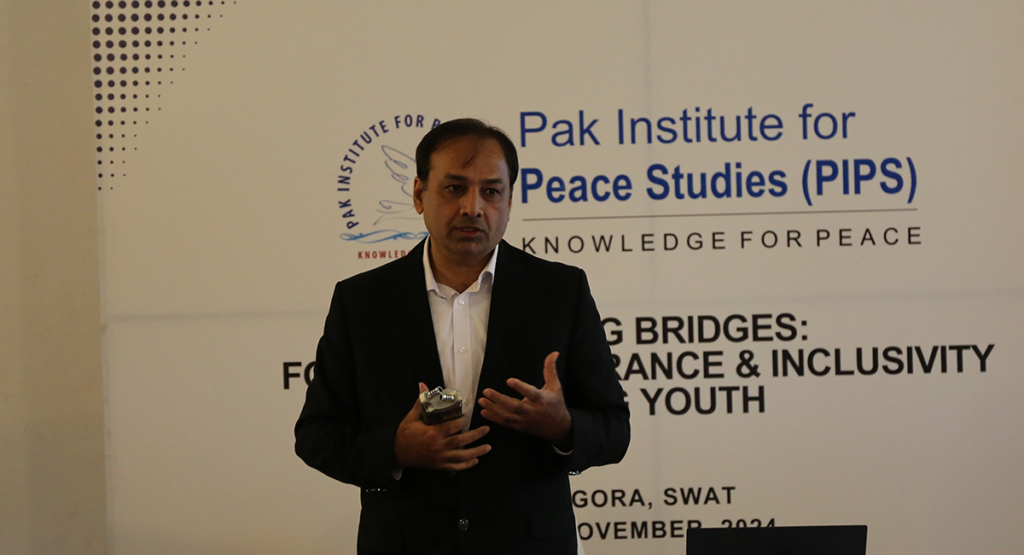Building Bridges: Fostering Tolerance and Inclusivity among Youth
Training Workshop-1
Pak Institute for Peace Studies (PIPS) organized a two-day workshop titled “Building Bridges: Fostering Tolerance and Inclusivity Among Youth” on November 25–26, 2024 in Shangla, Swat. The event focused on engaging youth to foster tolerance and inclusivity within their communities.
Guest speakers highlighted the importance of empowering youth to embrace change by interacting with individuals from diverse ethnic, social, and cultural backgrounds. They emphasized that adopting inclusive practices would ultimately contribute to societal peace. Speakers also stressed the critical need for interfaith harmony, which they described as essential for enabling young people to realize their full potential.
In his opening remarks, President PIPS Muhammad Amir Rana provided an in-depth overview of Pakistan’s historical journey, state structure, and contemporary policymaking challenges. He urged the youth to embody patience, open-mindedness, and a willingness to respect differing opinions—qualities he deemed vital for building a more tolerant and cohesive society.
Advocate Islamabad High Court Dileep Kumar Doshi addressed the audience on the concept of human rights, highlighting how conflicts of interest arise when these civil liberties are selectively interpreted and implemented. Mr. Doshi’s discussion also emphasized the rights related to natural resources—land, forests, and water—and how these are frequently neglected in favor of safeguarding personal or group interests.
He provided a historical perspective on human rights, tracing humanity’s progress from the era of Cyrus the Great. He referenced how, during Cyrus’s reign, cruelty and unlawful executions were prohibited, drawing parallels to modern-day discussions on slavery and human dignity. Mr. Doshi further elaborated on the legislative process in Pakistan, outlining the detailed, step-by-step procedures necessary for passing laws that genuinely protect civil liberties. He underscored the importance of implementing these processes both in letter and in spirit to ensure justice and equity. In his conclusion, he stressed the critical role of participatory governance in upholding civil liberties and fostering fairness within society.
The participants posed several questions, including one about the differences between the abolition of slavery by Cyrus the Great and that by former United States President Abraham Lincoln in the 19th century. It was noted that during Cyrus’s reign, efforts were made to prevent illegal deaths, whereas Lincoln’s actions led to the complete abolition of slavery.
Renowned scholar and social activist Mr. Zubair Torwali talked about Pakistan’s linguistic, ethnic, and social diversity, with a particular focus on Khyber Pakhtunkhwa. He discussed the caste system, highlighting how social mobility is influenced by the company one keeps, which also shapes individual personalities. Mr. Torwali drew attention to the Kalash people, stressing the importance of preserving their cultural rights for future generations. He further emphasized the role of education and awareness in fostering inclusivity and protecting the rights of marginalized communities. His remarks underscored the need for collective efforts to celebrate and safeguard Pakistan’s rich multicultural heritage.
PIPS researchers Ms. Esham Farooq and Ms. Hina Khaliq Taj facilitated an engaging activity where participants expressed their perspectives on life through pastel-colored drawings. Various themes of an ideal world emerged, including climate change, peace, human rights, and equality. Participants then presented their artwork to the audience, sharing insights into the core values they believed were significant in today’s world. This interactive exercise underscored the importance of creativity in fostering empathy, making it a memorable and impactful part of the workshop.
Senior journalist Mr. Imran Mukhtar addressed the audience on the workings of Pakistan’s National Assembly and Senate. The discussion focused on the interplay between the constitution, parliament, and citizenship, emphasizing how they collectively guide the country’s governance. The session also explored the allocation of seats in the National Assembly and Senate, the operational mechanisms of both houses, and their budgetary processes.
PIPS President Muhammad Amir Rana highlighted dialogue as the key to resolving religious, economic, and social challenges. He stressed the importance of access to accurate information in addressing current issues and urged today’s youth to prioritize skill development. This, he noted, would contribute to the growth and betterment of society as a whole.


